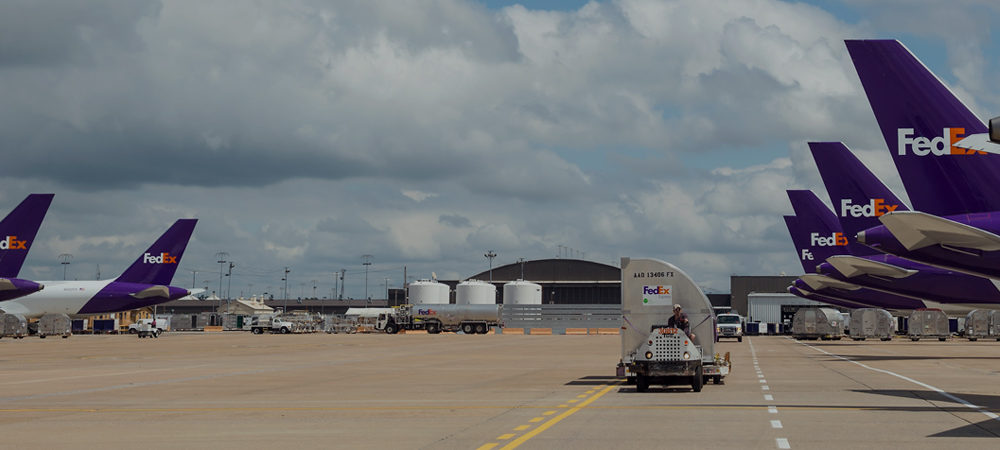
US K1FO NEWS :
ALL THE REAL NEWS FROM US,
President Trump’s agenda is driving an economic resurgence that is creating more and more opportunities for American workers.
- More than 5.3 million jobs were created between President Trump’s election and his second State of the Union Address alone.
- June 2019 marked the 16th consecutive month that America’s unemployment rate remained at 4 percent or below.
- In early 2019, wage growth for U.S. workers hit its fastest pace in a decade.
This high-energy growth environment presents both a challenge and an opportunity. The challenge is that companies must find more workers with specific skill sets to fill an increasing number of open jobs. The opportunity is that with more affordable, relevant training, many American workers will now have the chance to move into better jobs that deliver bigger paychecks.
On July 19, 2018, President Trump signed an Executive Order establishing the National Council for the American Worker.
Comprised of senior Administration officials, the National Council for the American Worker is charged with developing a National strategy for training and retraining the workers needed across high-demand industries. The group will convene voices from the public, private, education, labor, and not-for-profit sectors to enhance employment opportunities for Americans of all ages.
The National Council for the American Worker is Co-Chaired by:
- Secretary of Commerce Wilbur Ross
- Advisor to the President Ivanka Trump
- Director of the Domestic Policy Council Joseph Grogan
EXECUTIVE ORDER ON THE NATIONAL COUNCIL FOR THE AMERICAN WORKER
The American Workforce Policy Advisory Board
Working directly with the National Council for the American Worker, President Trump’s Executive Order also established the American Workforce Policy Advisory Board.
This Board brings together members from diverse backgrounds including the private sector, educational institutions, and State and local governments.
Their mission? Ensure all Americans can benefit from the nation’s historic economic boom and record low employment rates.
The American Workforce Policy Advisory Board seeks to bring more Americans off the sidelines and into the workforce by improving jobs data transparency and skills-based hiring and training, advancing opportunities for lifelong learning, and promoting multiple pathways to family-sustaining careers.
Most important, they will focus on getting results.
Co-chaired by Commerce Secretary Wilbur Ross and Advisor to the President Ivanka Trump, members of the Advisory Board include:
- Jay Box, President, Kentucky Community and Technical College System
- Walter Bumphus, President & CEO, American Association of Community Colleges
- Jim Clark, President & CEO, Boys & Girls Clubs of America
- Tim Cook, CEO, Apple
- Tom Donohue, CEO, U.S. Chamber of Commerce
- Juanita Duggan, President & CEO, National Federation for Independent Business
- Elizabeth Goettl, President & CEO, Cristo Rey Network
- Marillyn Hewson, Chairman, President, & CEO, Lockheed Martin
- Eric Holcomb, Governor, Indiana
- Barbara Humpton, CEO, Siemens USA
- Al Kelly, CEO, Visa
- Vi Lyles, Mayor, Charlotte, North Carolina
- Bill McDermott, CEO, SAP America
- Sean McGarvey, President, North America’s Building and Trades Unions
- Doug McMillon, President & CEO, Walmart
- Craig Menear, Chairman, President, & CEO, Home Depot
- Michael Piwowar, Executive Director, Milken Institute
- Scott Pulsipher, President, Western Governors University
- Kim Reynolds, Governor, Iowa
- Ginni Rometty, Chairman, President, & CEO, IBM
- Scott Sanders, Executive Director, National Association of State Workforce Agencies
- Johnny Taylor, President & CEO, Society for Human Resource Management
- Jay Timmons, President & CEO, National Association of Manufacturers
- Sheree Utash, President, WSU Tech
- Marianne Wanamaker, Professor, University of Tennessee
LEARN MORE ABOUT THE AMERICAN WORKFORCE POLICY ADVISORY BOARD
With roughly 1.3 open jobs for each unemployed worker, employers are having a hard time filling positions.
As many as 83% of employers reported difficulty finding workers with the right skills. And according to American Action Forum (AAF), a center-right think tank, the skills gap will end up costing the U.S. economy $1.2 trillion over the next 10 years.
“It’s true that there’s been a need to really kick some employers in the pants, basically, or politely get them to volunteer to do more. You can’t fix the skills gap, you can’t train workers for jobs unless you involve the people who are going to hire them,” Tamar Jacoby, president of Opportunity America, a think tank focused on economic mobility.
The tight labor market has, indeed, forced employers’ hands. Many of the companies that signed the pledge had already begun training workers to meet their business needs. “Employers might have been reticent before to [train workers] because it’s spending money on something, and employers want to avoid that where they can,” says Tara Sinclair, George Washington University professor and economist at Indeed.com.
Yahoo Finance looked into what a handful of companies that signed the Pledge to America’s Workers have been doing to bridge their own workers’ skills gap.
Lockheed Martin
Lockheed Martin (LMT) is the prime contractor building NASA’s Orion, the spacecraft designed for deep space exploration. The company – as well as others – is working in partnership with NASA to deliver on Trump’s space exploration goals.

At the time it signed onto the president’s pledge, the aerospace giant announced it’s investing $5 million in vocational and trade programs and pledged to create 8,000 new jobs for skilled workers over the next five years. Expanding the advanced manufacturing technician apprenticeship program (AMTAP) is a key part of Lockheed Martin’s five-year pledge. This program, which has no experience requirement for applicants, offers a five-week paid certification program – candidates finish “with the skills to build electronics hardware.” At the conclusion of the program, successful candidates have the chance for employment in Lockheed Martin’s space program.
Ivanka Trump, the president’s daughter, advisor and co-chair of the American Workforce Policy Advisory Board leading the initiative, visited Lockheed Martin’s Denver space facility in July. “Through Lockheed Martin’s Pledge to America’s Workers commitment, and the booming American space industry, we are at the forefront of the changing nature of work, from the use of artificial intelligence to advanced manufacturing,” Ivanka Trump said.
Walmart
A year after joining the pledge, Walmart (WMT), which pledged to provide training for 1 million people over the next five years, is ahead of schedule, having already trained 200,000 people. (Walmart has more than 2.2 million employees.)

This was the first time the retail giant publicly committed to a specific number of associates they’re investing in. Workforce training is “hugely important for Walmart,” and being able to partner with the White House was one of the main reasons the mega retailer got involved, said Walmart spokesperson Kory Lundberg.
Walmart operates more than 5,000 stores across the U.S. and Puerto Rico. Through its educational programs such as Pathways, which builds jobs skills, and Academies, Walmart is addressing the communication and leadership skills gap facing its workforce. Lundberg said training helps workers be more confident in their jobs. “If you are confident in doing your job, you’re going to be better at it. You’re going to be better able to take care of customers, it’s going to result in a better experience for the worker, it’s going to result in a better experience for the company,” he said.
FedEx
FedEx (FDX) pledged to train 512,000 workers across the country over the next five years. The company, which employs over 425,000 people worldwide, is offering tuition assistance for FedEx workers and pursuing its FedEx Cares Employment Pathways initiative, which offers people outside the company training they need to pursue employment with FedEx.

In response to its need for skilled pilots, mechanics, and aviation professionals, the company also launched the FedEx Purple Runway Aviation Scholarship in October 2018. The program offers $2.5 million in scholarships to aspiring pilots, aircraft maintenance technicians and other aviation professionals.
“We are encouraged by the Administration’s commitment to ensuring American workers develop the appropriate skills and have access to the training needed for today’s in-demand jobs and the jobs of the future,” FedEx CEO Frederick Smith, who is a member of the White House’s American Workforce Policy Advisory Board, said when he joined the pledge last year.
Hill International Trucks
Hill International Trucks pledged to hire and train 50 workers over the next five years. The Ohio truck and trailer dealership business employs more than 230 workers. “I think it’s great that the White House has this initiative, especially in our industry and it’s becoming increasingly challenging to find these skilled labor positions. So the more training and partnerships that we can have out there between businesses and schools, I think the better,” says Hill International Trucks’ spokesperson Renee Murphy.

Hill says it’s facing a shortage of skilled workers who know how to repair heavy-duty trucks and school buses. One way it’s addressing this deficit is through partnerships with local high school auto programs and trade schools. It’s currently training 21 workers and is on track to reach its goal of training 50 workers as part of the White House pledge.
Hill is offering workers training in its services and parts departments for positions like diesel technician. They’ve also invested in a management trainee program. Murphy says the company is investing $95,000 per technician over the next five years.
Ebnar Furnaces
Ebnar Furnaces, which is headquartered in Austria, pledged to hire and train 25 workers over the next five years in the U.S. Ebnar, which builds equipment to process steel, currently employs 85 full-time employees in the U.S. and about 750 workers in Austria. Managing director Herbert Gabriel says a $30 million order from a steel mill received last week will enable the company to keep its commitment.
Ebnar Furnaces, like other companies that have signed the White House pledge, intends to fulfill its commitment – but ultimately it’ll be the business environment over the next five years that will determine whether it can afford to invest in hiring and training more workers. (Recent Labor Department data shows that U.S. hiring and job openings dropped in June. GDP growth slowed to 2.1% in the second quarter, from 3.1% in Q1.)
“I’m sure we would have done this without the initiative,” Gabriel says. “At the end of the day we’re running a business, a for-profit business that hopefully encounters a business environment that allows us to grow. I think what the administration is at least trying to do is provide a business environment to allow us to do that.”
Jacoby, of Opportunity America, says that while the White House initiative is important, more work needs to be done. “It’s a big country and this is only some of the companies, and it’s sometimes easier for a FedEx than it is for a small company so we’re not finished yet. There’s a lot of work to be done…but it is an important step in the right direction.”
Source : Yahoo Finance, US K1FO NEWS




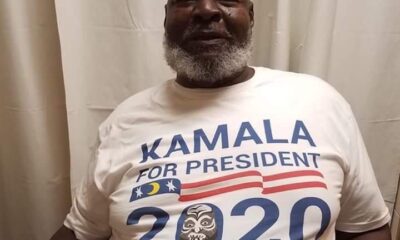







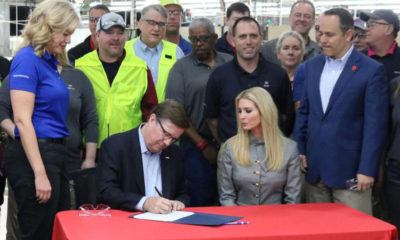
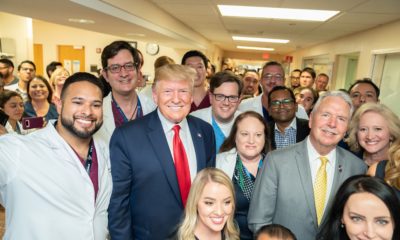



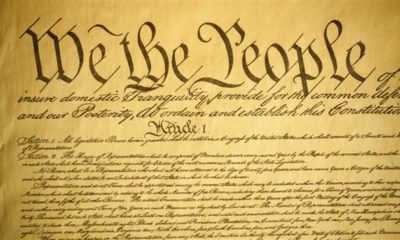



Facebook
Twitter
Pinterest
Google+
RSS